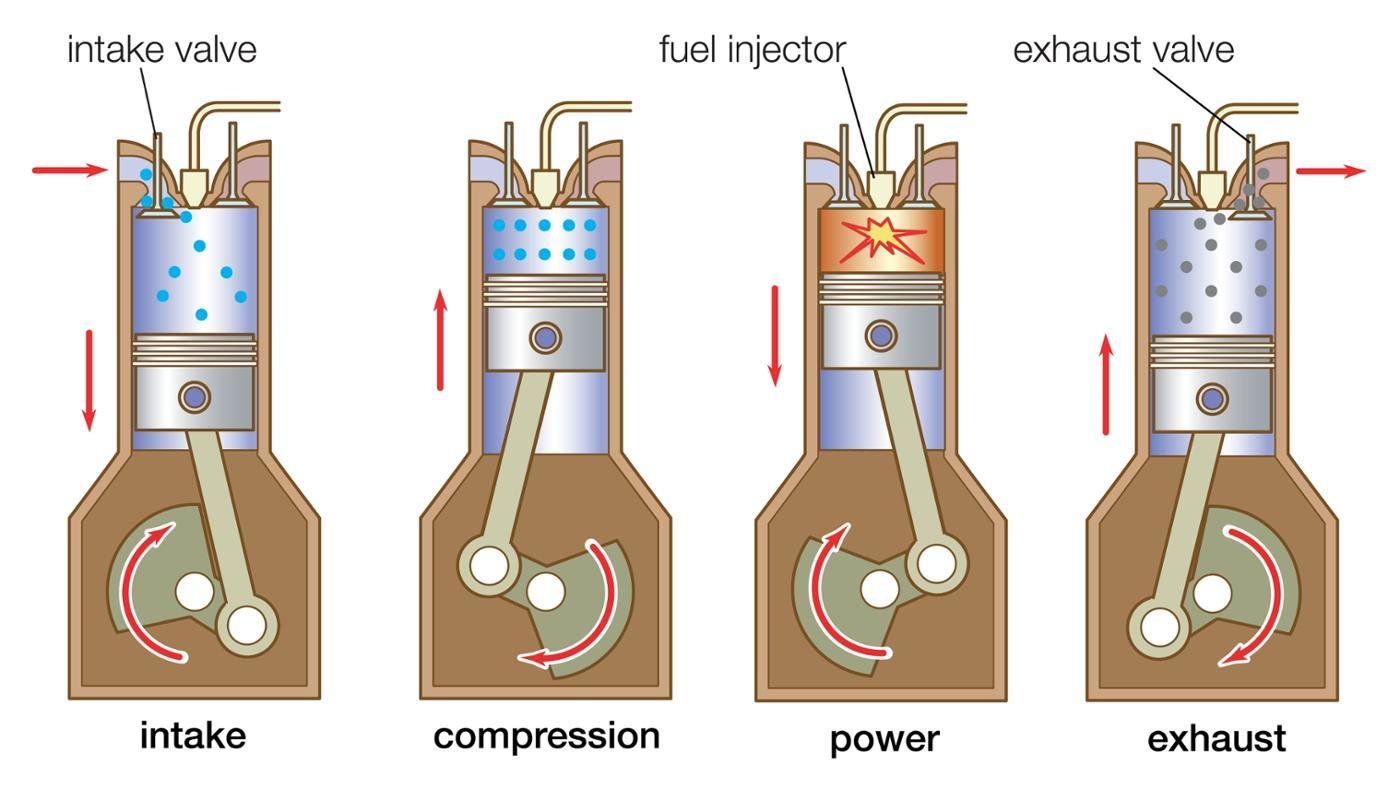Top-Rated Vendors: Engines For Africa Supplies Dependable Power
Top-Rated Vendors: Engines For Africa Supplies Dependable Power
Blog Article
A Full Guide to Choosing the Right Engine for Your Job
Selecting the appropriate engine for your task is a critical decision that can substantially influence its general success. Each of these elements plays a critical duty in making sure that your chosen engine not only fulfills prompt purposes however likewise lines up with lasting goals.
Specify Your Project Needs
Defining your job requires is an essential action in picking the suitable engine for successful execution. A thorough understanding of your project's objectives will certainly direct you in recognizing the features and capabilities required from an engine. Begin by outlining the extent of your project, consisting of the preferred performance, target market, and the details end results you intend to achieve.
Following, consider the technological needs that straighten with your job objectives. This consists of examining the compatibility of the engine with existing systems, along with the programs languages and structures that will certainly be made use of. In addition, analyze the level of scalability needed to suit future growth or adjustments in need.
Budget plan restraints additionally play an important duty in specifying your project needs. Develop a clear monetary framework to guide your decision-making process, guaranteeing that the engine chosen fits within your budget while providing the necessary functionality.
Evaluate Performance Requirements

Next, consider the scalability of the engine. Assess whether it can handle increased workloads as your task expands. Engines that sustain straight scaling are commonly preferable for larger applications. Additionally, review the engine's efficiency under various problems, such as peak use scenarios, to ensure it satisfies your dependability requirements.
Think About Simplicity of Usage
While technological specs are vital, the simplicity of use of an engine can considerably affect the growth procedure and overall job success. An user-friendly interface, clear documents, and streamlined workflows can significantly minimize the understanding curve for designers, allowing them to concentrate on creativity and problem-solving instead of grappling with complicated devices.
When evaluating an engine's ease of usage, take into consideration the onboarding experience. A well-structured introduction, full with tutorials and example tasks, can facilitate a smoother transition for brand-new users. Additionally, the clarity and comprehensiveness of the engine's documents play a crucial duty; thorough overviews and API referrals can empower programmers to fix and apply attributes efficiently.
Another facet to consider is the engine's customization capabilities. An engine that allows for very easy adjustments can be extra straightforward, as designers you can find out more can tailor it to fit their particular needs without extensive inconvenience. Analyze the process assimilation with tools and platforms you already utilize. A natural community can improve performance and reduce rubbing during great site the advancement process. Ultimately, choosing an engine that prioritizes simplicity of use can bring about an extra pleasurable and efficient development experience.
Assess Area and Assistance
The stamina of an engine's area and assistance network can significantly influence a developer's experience and success. A vivid community often suggests a wealth of common expertise, resources, and fixing assistance that can boost your project's advancement process. When examining an engine, take into consideration the dimension and activity level of its area. Larger areas usually offer much more forums, tutorials, and third-party plugins, making it possible for developers to find options extra successfully.
Furthermore, examine the accessibility of official support networks. Reputable paperwork, receptive client support, and regular updates are crucial for attending to technological problems and keeping your project on course. Engines For Africa. Energetic areas additionally foster cooperation, providing possibilities for networking and responses, which can be important, especially for independent developers or small teams
Additionally, explore the visibility of community-run events, such as hackathons or meetups. These gatherings can improve your understanding of the engine while connecting you with skilled users and possible collaborators. In recap, a robust community and support group not only streamline growth yet also develop an atmosphere for learning and technology, eventually improving the chance of your task's success.
Contrast Price and Licensing Options
Spending plan considerations play an essential duty in choosing the right engine for your job, as the price and Discover More licensing alternatives can considerably impact both short-term costs and long-term feasibility. Engines For Africa. Different engines supply differing pricing frameworks, which can consist of single acquisition costs, registration models, or revenue-sharing contracts based on your project's profits

Accrediting alternatives additionally vary dramatically. Some engines are open-source, providing versatility and community-driven support, while others may call for proprietary licenses that limit use and circulation. Understanding the ramifications of each licensing design is important, as it impacts ownership civil liberties, future scalability, and prospective legal obligations.
Conclusion
To conclude, picking the proper engine for a project demands a comprehensive evaluation of specified task demands, performance demands, simplicity of use, community support, and cost factors to consider. By systematically addressing these important elements, decision-makers can ensure positioning with both future and existing job demands. A knowledgeable option inevitably enhances the chance of job success, allowing reliable resource appropriation and taking full advantage of potential end results within the defined monetary restraints.
Picking the ideal engine for your project is an important choice that can considerably influence its general success.Specifying your job needs is an essential step in picking the proper engine for effective application. An extensive understanding of your task's purposes will lead you in recognizing the functions and capacities needed from an engine.When you have a clear understanding of your task requires, the following action is to evaluate the efficiency demands of the engine.In final thought, selecting the ideal engine for a job necessitates an extensive analysis of specified project requirements, efficiency needs, convenience of use, community assistance, and expense factors to consider.
Report this page